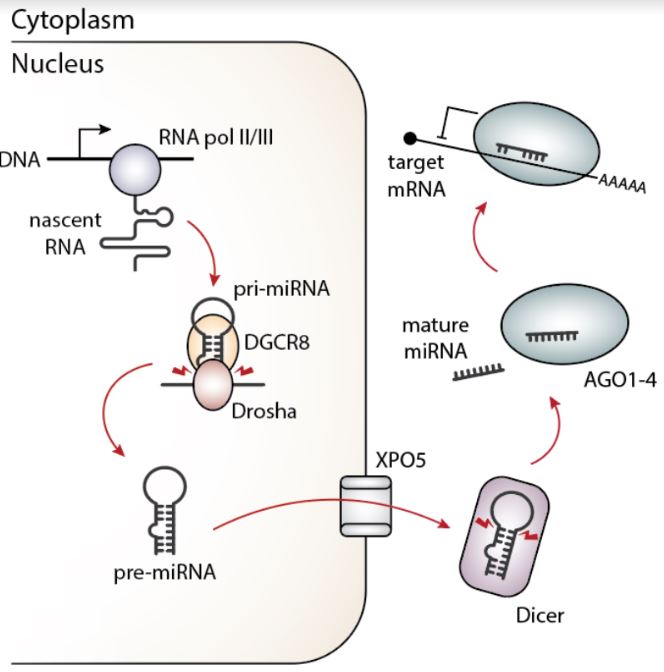Publications
miRNA-Directed Dendritic Cell Reprogramming
Abstract
Direct cell reprogramming is a process of turning one somatic cell type into another, usually achieved by overexpression of cell type-specific transcription factors (TFs) which can be combined with small molecules and microRNAs (miRNAs). Using Clec9a-tdTomato reporter mouse embryonic fibroblasts (MEFs), our group previously identified the combination PU.1, IRF8 and BATF3 (PIB) as sufficient to reprogram mouse and human fibroblasts to induced dendritic cells (iDCs). The generated DCs activate a DC type 1 (cDC1) gene expression program and cross-present antigens, albeit at low efficiency. We hypothesize that miRNAs could synergize with TFs in the DC reprogramming process, leading to increased efficiency. We started by identifying candidate miRNA based on literature analysis and DC-specific miRNA expression data. We cloned 15 candidate hairpin-containing genomic regions in a constitutive lentiviral expression system. Resulting lentiviral vectors were co-transduced alongside the polycistronic lentiviruses encoding DC-inducing TFs. We identified two miRNAs that improved iDC reprogramming by distinct mechanisms. One upregulated the population co-expressing CD45 and MHC-II while the other led to a remarkable increase in the cDC1-specific marker XCR1. These phenotypic changes are corroborated by morphologic differences as quantified by fluorescence microscopy. When combined, these two miRNAs increased iDC1 reprogramming efficiency 13-fold, demonstrating an additive impact on iDC reprogramming. Future work includes construction of a single PIB-miRNA dual expression vector and functional characterization of miRNA-assisted iDCs. We also cloned and tested bicistronic reprogramming factors to test whether miRNAs will be sufficient to substitute the action of individual TFs. In summary, our candidate screen identified miRNAs that increase iDC reprogramming efficiency and their cDC1 marker expression. Using this system to explore the underlying mechanisms may provide valuable insights into the role of miRNAs in cDC1 subtype specification. Overall, our study brings reprogramming to cross-presenting cDC1s closer to patient-tailored cancer immunotherapy.
